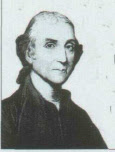Air
WE LIVE, MOVE, AND
BREATHE at the bottom of an immense ocean of air called the atmosphere. Air
is an invisible mixture of gases, made up of a teeming mass of millions of
tiny gas molecules that move about randomly and at high speed. Without air,
the Earth would be a lifeless planet, because the gases air contains are
vital to plants and animals.
อากาศ
พวกเรามีชีวิตอยู่ได้ เคลื่อนไหวได้ และหายใจได้ภายใต้กระแสคลื่นอากาศอันมากมาย
ที่เรียกว่า บรรยากาศ อากาศคือส่วนผสมของก๊าซที่ไม่สามารถมองเห็นได้ ซึ่งเกิดขึ้นจากมวลโมเลกุลของก๊าซเล็ก
ๆ หลายล้าน ที่มีอยู่เต็มไปทั่ว ทั้งพัดเคว้งคว้างอยู่ไปทั่วและพัดด้วยความเร็วสูง
ปราศจากอากาศแล้ว โลกน่าจะเป็นดาวเคราะห์ที่ไร้สิ่งมีชีวิต เนื่องจากอากาศมีความจำเป็นต่อพืชและสัตว์
|
Fractional
distillation
The gases in air
have many uses. For example, divers use tanks of oxygen to enable them to
breathe underwater, and nitrogen is used in explosives. Gases are extracted
from air by a process called fractional distillation. Air is cooled and compressed
until it forms a blue liquid.
When the liquid
expands and warms up, each gas boils off at a different temperature and is
collected separately.
ก๊าซในอากาศมีประโยชน์มากมาย ยกตัวอย่างเช่น
นักดำน้ำจะใช้ถังออกซิเจนเพื่อให้ตัวเองหายใจในน้ำได้
และไนโตรเจนก็ถูกใช้ในวัตถุระเบิด ก๊าซที่ผ่านขบวนการสกัดออกจากอากาศ เรียกว่า
การกลั่นลำดับส่วน ก๊าซที่ระบายความร้อนและถูกบีบอัดจนกระทั่งเป็นของเหลวสีฟ้า
(ผู้รู้โปรดแนะนำ) เมื่อของเหลวขยายตัวออกและอุ่นขึ้น ก๊าซแต่ละอย่างจะระเหยออกที่อุณหภูมิต่าง
ๆ กันและถูกเก็บไว้แยกต่างหากจากกัน
|
|||
Composition of air
Any volume of
pure, dry air is 78.09% nitrogen, 20.95% oxygen, 0.93% argon, and 0.03% carbon
dioxide and other gases. These coloured balls represent the proportions of
the different gases in air.
ส่วนประกอบของอากาศ
ในอากาศบริสุทธิ์ อากาศแห้งมีไนโตรเจน 78.09% ออกซิเจน 20.95% อาร์กอน
0.93% คาร์บอนไดออกไซด์และอื่น ๆ อีก 0.03% ลูกบอลสีเหล่านี้เป็นตัวแทนสัดส่วนของก๊าซต่าง ๆ ในอากาศ
|
||||
Carbon dioxide (CO2)
Carbon dioxide is
vital for plant life. Plants absorb carbon dioxide from the air and combine
it with water gathered by their roots to form sugars, which they use for
growth.
คาร์บอนไดออกไซด์ (CO2)
คาร์บอนไดออกไซด์มีความจำเป็นสำหรับการดำรงชีวิตของพืช พืชจะดูดเอาคาร์บอนไดออกไซด์จากอากาศและผสมกับน้ำที่รากเก็บมารวบรวมไว้เกิดเป็นน้ำตาล
ซึ่งพืชเหล่านั้นใช้ในการเจริญเติบโต
|
Oxygen (O2)
Burning is a
chemical reaction of a substance with oxygen, as this experiment shows. The
candle burns in the jar of air until it has used up all the oxygen. Humans
and other animals use oxygen from the air to "burn" food inside their
bodies and produce energy.
ออกซิเจน (O2)
การเผาไหม้เป็นปฏิกิริยาทางเคมีของสสารที่มีออกซิเจน
ดังการทดลองที่แสดงไว้นี้
เทียนไขเผาไหม้ในโถอากาศจนกระทั่งใช้ออกซิเจนจนหมดสิ้น
มนุษย์และสัตว์อื่น ๆ
ใช้ออกซิเจนจากอากาศเพื่อเผาผลาญอาหารในร่างกายและผลิตพลังงาน
|
|||
Nitrogen (N2)
Every living cell
contains nitrogen. Plants cannot take nitrogen from the air, so they get it
from the soil. Fertilizers contain nitrogen to replenish what plants remove
from the soil.
ไนโตรเจน (N2)
เซลล์ที่มีชีวิตทุก
ๆ เซลล์จะมีไนโตรเจน พืชไม่สามารถนำเอาไนโตรเจนมาจากอากาศ ดังนั้น พืชจึงนำเอาไนโตรเจนมาจากดิน
ปุ๋ยมีไนโตรเจนเพื่อเติมสิ่งที่พืชนำเอามาจากดินให้เต็มขึ้นมาใหม่
|
Argon (Ar)
The gas argon is
called an "inert" gas because it is so unreactive. Electric light
bulbs are often filled with argon. It prevents the bulbs filament from
burning up as it would in air, giving the bulb a much longer life.
อาร์กอน (Ar)
ก๊าซอาร์กอน เรียกว่า “ก๊าซเฉื่อย” เพราะมันไม่ทำปฏิกิริยากับธาตุอื่น ๆ
หลอดไฟฟ้าปกติจะเต็มไปด้วยก๊าซอาร์กอน มันป้องกันเส้นใยบาง ๆ ในหลอดไฟไม่ให้ถูกเผาไหมเนื่องจากมันอยู่ในอากาศ
ทำให้หลอดไฟมีอายุการใช้งานได้นานมากขึ้น
|
|||
Air pollution
Air is not naturally "pure"
and contains varying amounts of other substances, such as dust, water vapour,
bacteria, pollen, and polluting gases. Air pollution from industry and traffic
can cause serious health problems in towns and cities, as well as long-term
damage to the environment.
มลภาวะในอากาศ
อากาศโดยธรรมชาติแล้วไม่ “บริสุทฺธิ์” และมีสสารอื่น ๆ
มากมายแตกต่างกัน เช่น ฝุ่นละออง ไอน้ำ แบคทีเรีย ละออง และก๊าซที่เป็นมลภาวะ มลภาวะในอากาศจากอุตสาหกรรมและการจราจรสามารถก่อให้เกิดปัญหาทางสุขภาพอย่างหนักทั้งในเมืองเล็กและเมืองใหญ่
และเป็นอันตรายต่อสิ่งแวดล้อมในระยะยาวอีกด้วย
Smog
The hazy air
pollution that hangs over an urban area is called smog. Sulphurous smog is
the result of burning fuels with a high sulphur content, such as coal.
Photochemical smog occurs when sunlight causes car exhaust fumes to react
together.
หมอกควัน
มลภาวะในอากาศสลัว ๆ ซึ่งอยู่รอบ ๆ บริเวณเมือง
เรียกว่า หมอกกำมะถัน เป็นผลมาจากเชื้อเพลิงที่เผาไหมมีสารกำมะถันสูง เช่น
ถ่านหิน หมอกปนควันแบบโฟโตเคมีเกิดขึ้นเมื่อแสงอาทิตย์เป็นสาเหตุให้ควันไอเสียรถยนต์แสดงปฏิกิริยาร่วมกัน
|
Water vapour
Up to 4 per cent of
the volume of air may be water vapour. Warm air can hold more water vapour
than cool air. A can of cold drink absorbs heat from the air around it. As
the air cools, water vapour condenses out of the air to form droplets on the
outside of the can.
ไอน้ำ
ปริมาณอากาศถึง 4 เปอร์เซ็นต์อาจจะเป็นไอน้ำ
อากาศอบอุ่นสามารถรับไอน้ำได้มากกว่าอากาศเย็น กระป๋องของเครื่องดื่มเย็น ๆ
รับความร้อนจากอากาศที่อยู่รอบ ๆ ตัวมัน ในขณะที่อากาศเย็นลง ไอน้ำจะกลั่นตัวจากอากาศก่อตัวเป็นหยดน้ำข้างนอกกระป๋อง
|
Air pressure
Air exerts a force
on objects because its moving molecules are constantly colliding with them.
Air pressure is a measure of this force. The pressure of the open air is
called atmospheric pressure. It is lower at high altitudes, where the air is
less dense.
ความกดอากาศ
อากาศจะออกแรงต่อวัตถุ เนื่องจากโมเลกุลที่เคลื่อนไหวของอากาศกำลังชนกับวัตถุเหล่านั้นอย่างสม่ำเสมอ
ความกดอากาศคือการวัดพลังอันนี้ ความกดอากาศในที่โล่ง เรียกว่า ความกดอากาศ
(หรือความดันบรรยากาศ) ที่ระดับสูงจะมีความกดดันอากาศต่ำ
เพราะมีความหนาแน่นน้อยกว่า
|
||
Barometer
A device that
measures atmospheric pressure is called a barometer. It can be used to
forecast a change in the weather, because air pressure varies slightly from
day to day with changes in the air's temperature and humidity.
บารอมิเตอร์
อุปกรณ์วัดความกดอากาศ เรียกว่า บารอมิเตอร์ สามารถใช้พยากรณ์ความเปลี่ยนในสภาพอากาศได้
เนื่องจากวันต่อวันจะมีความกดอากาศเปลี่ยนแปลงเล็กน้อยด้วยการเปลี่ยนแปลงในอุณภูมิและความชื้นของอากาศ
|
Sucking
When a person sucks
on one end of a drinking straw, the lungs reduce the air pressure inside the
straw. Atmospheric pressure on the liquid's surface does the rest, pushing
down on the liquid, and making it rise up through the straw.
การดูด
เมื่อคนดูดปลายด้านหนึ่งของหลอดดูด
ปอดจะลดความกดอากาศภายในหลอด ความกดอากาศที่อยู่ด้านพื้นผิวของของเหลวจะกดดันของเหลวลงและทำให้มันไหลขึ้นทางหลอด
|
Compressed air
The pressure of air
can be increased by compressing it - that is, pumping more and more of it
into a limited space. Bicycle tyres are filled with compressed air to give a
smooth, comfortable ride.
อากาศอัด
ความกดอากาศสามารถเพิ่มขึ้นได้ด้วยการกดมัน
นั่นคือ การสูบอากาศเข้าไปในพื้นที่ว่างที่จำกัดเพิ่มมากขึ้น
ยางรถจักรยานจะถูกเติมลมด้วยการกดอากาศเพื่อให้ขับขี่ได้นุ่มและสะดวกสบาย
|
Weight of air
Air has weight, as this simple
experiment proves. Identical empty balloons are attached to both ends of a
stick. The balloons balance when the stick is suspended from its middle. Inflating
one of the balloons tips the balance, because the balloon full of compressed
air weighs more than the empty balloon.
น้ำหนักของอากาศ
อากาศก็มีน้ำหนัก ดังการทดลองด้านล่างนี้ ลูกบอลลูนที่ว่างเปล่าเท่ากัน
ผูกติดกับปลายแท่งไม้ทั้งสองข้าง ลูกบอลลูนจะมีความสมดุลกัน ขณะที่แท่งไม้ถูกเชือกผูกตรงกลาง
การเติมลมลูกบอลลูนอีกข้างหนึ่งจะทำให้เสียสมดุล เนื่องจากลูกบอลลูนที่มีอากาศที่อัดเข้าไปมีน้ำหนักมากกว่าลูกบอลลูนว่างเปล่า
Joseph Priestley
English scientist and clergyman Joseph
Priestley (1733-1804) discovered oxygen in 1774. He also discovered many other
gases, including nitrous oxide (laughing gas) and ammonia. Priestley studied
carbon dioxide and devised a way to make carbonated (fizzy) water.
โจเซฟ พริสต์ลีย์
โจเซฟ
พริสต์ลีย์นักวิทยาศาสตร์และหมอสอนศาสนาชาวอังกฤษ (มีชีวิตอยู่ระว่าง 1733 – 1804 =
พ.ศ. 2276 – 2347 อายุ 71 ปี) ได้ค้นพบก๊าซออกซิเจนใน ค.ศ. 1774
(พ.ศ. 2317) ท่านยังได้ค้นพบก๊าซอื่น ๆ อีกมากมาย รวมทั้งก๊าซไนตรัสออกไซด์
(ก๊าซหัวเราะ) และแอมโมเนีย พริสต์ลีย์ได้ศึกษาก๊าซคาร์บอนไดออกไซด์และได้คิดค้นวิธีทำน้ำอัดลมขึ้นมาใหม่















